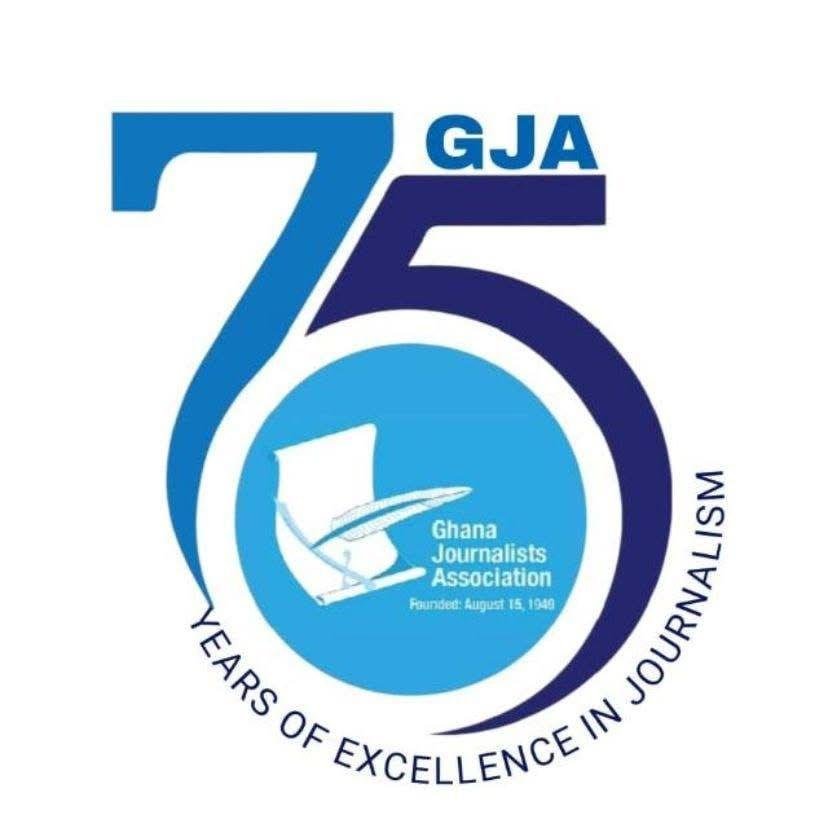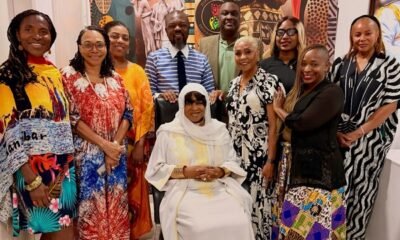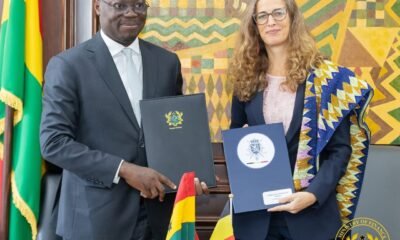News
Nine-member committee named for 29th GJA Media Awards

The Ghana Journalists Association (GJA) has formed a nine-member committee to vet entries and select winners for the 29th GJA Media Awards.
The committee is chaired by Mr. Gabriel Bosompem, a former Commissioner of the National Media Commission and former Production Manager of TV3 (Media General).
Other members include Mr. Kingsley Obeng-Kyere, 2012 GJA–P.A.V. Ansah Journalist of the Year and Senior Manager at the Ghana Broadcasting Corporation (GBC); Madam Nana Yaa Konadu, a presenter at Peace FM; and Madam Theresa Owusu Ako, former Head of Radio News at GBC.
The rest are Madam Agnes Boye-Doe, Deputy News Editor at the Ghana News Agency; Mr. David Andoh, President of the Ghana Photojournalists Network and a photojournalist at Multimedia; Alhaji Salifu Abdul-Rahaman, Editor of the Ghanaian Times; Mr. Samuel Bio, Night Editor at the Graphic Communications Group Limited; and Mr. Jeorge Wilson Kingston, Executive Secretary of PRINPAG.
The committee will select winners across various categories for this year’s awards ceremony, which will take place at the Manhyia Palace in Kumasi in November 2025.
Top prizes include the prestigious GJA/P.A.V. Ansah Journalist of the Year, Best Female Journalist of the Year, Komla Dumor Most Promising Journalist of the Year, and Best Student Journalist of the Year.
The 29th GJA Media Awards, to be held under the auspices of Otumfuo Osei Tutu II, the Asantehene, is expected to be a grand event, attracting both national and international dignitaries.
The GJA National Executive has expressed appreciation to corporate bodies for their continuous support and encouraged more organizations to come on board to make the event a success.
Hot!
Diaspora Affairs Office hosts African diaspora delegation ahead of citizenship conferment

The Diaspora Affairs Office at the Office of the President has hosted a delegation of African diaspora women who are in Ghana ahead of a planned Presidential Conferment of Citizenship ceremony.
The Director of Diaspora Affairs, Kofi Okyere Darko, explained in a Facebook post that the visit was a gesture of appreciation by the delegation to the Government of Ghana for its continued efforts to reconnect Africans in the diaspora with their ancestral homeland.
He indicated that the ceremony, scheduled for next Monday, will officially grant Ghanaian citizenship to members of the delegation as part of the country’s broader engagement with the African diaspora.
The delegation was led by Erica Bennett, Founder of the Diaspora Africa Forum.
According to Mr Okyere Darko, her years of advocacy have played an important role in strengthening ties between Africa and people of African descent living abroad.
He noted that the group’s journey towards citizenship represents not only a legal process but also a cultural and spiritual return to their roots.
Also present at the meeting was Natalie Jackson, an attorney who is also expected to receive Ghanaian citizenship during the ceremony. She works closely with renowned civil rights lawyer Ben Crump.
Mr Okyere Darko emphasised that Ghana remains committed to strengthening relationships with the African diaspora and promoting unity, identity, and shared heritage among people of African descent worldwide.
By: Jacob Aggrey
News
Ghana signs debt restructuring agreement with Belgium

Ghana has signed a debt restructuring agreement with the Kingdom of Belgium as part of efforts to restore the country’s economic stability after the financial crisis that hit the nation in 2022 and 2023.
The Minister of Finance, Cassiel Ato Forson, today disclosed that he signed the agreement on behalf of the Government of Ghana.
He explained that Ghana experienced a very difficult period during the crisis, which forced the government at the time to declare a debt default.
However, he indicated that the country is now recovering and witnessing a significant economic turnaround.
According to him, stronger systems are also being put in place to ensure that Ghana does not return to such a situation again.
Dr Forson noted that the agreement with Belgium is the eighth deal Ghana has concluded with countries under the Official Creditor Committee as part of its external debt restructuring programme.
He expressed appreciation to the Government of Belgium for its support and partnership with Ghana during the process.
The Finance Minister thanked Carole van Eyll, Ambassador of Belgium to Ghana, for her role in strengthening relations between the two countries.
The agreement forms part of Ghana’s broader effort to restructure its external debts and stabilise the economy following the crisis.
By: Jacob Aggrey

 News1 week ago
News1 week agoFinance Minister outlines new gold policies to boost reserves and curb smuggling

 News1 week ago
News1 week agoSam George launches the 2026 Meteorological Awareness Month; presents the 2026 seasonal forecast for southern Ghana

 Hot!1 week ago
Hot!1 week agoBreaking: Footballer who killed two children in Abesim handed lifetime sentence














